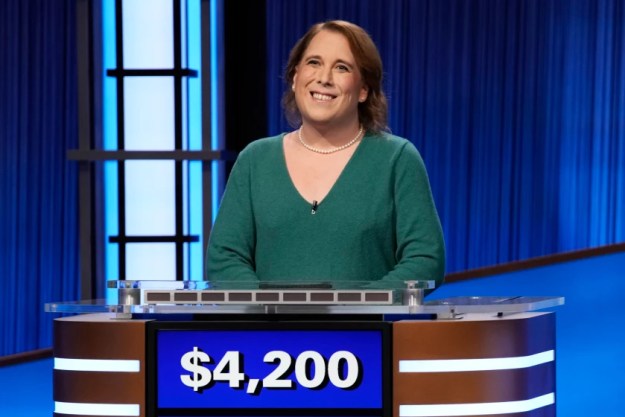
For weeks now, I’ve been wondering: Is this Ukraine business just something that will pass (just bluffing and maneuvering), to the point that a year from now we’ll hardly remember it? Or is this what it was like to live in 1939? Of course, I’ve fervently hoped it was the former.
So much for my fervent hopes on this front.
Oh, by the way, before I continue: All of you who hasten to jump on what you consider to be misguided historical allusions, just calm down. No, I don’t think Putin (or for that matter, Trump) is Hitler. I don’t think the MAGA phenomenon equals the Nazi party. I don’t for a moment consider the forces leading to this moment to be precisely the same as those that led Europe into its second conflagration in a lifetime. Nor do I know what will happen next.
You see, I actually am a student of history. I study it. I am constantly perplexed by it. Almost daily, I am stunned by something I didn’t know about it, and should have known. And I think about this, a lot.
What I’m talking about here is less about explaining this moment in a neat bumper-sticker encapsulisation. It’s really more about me still trying to understand 1939.
It’s always puzzled me. I grew up in the years in which the course of the 1930s and 40s were plain, and fixed, and obvious. I marveled at things: How was it possible that after the events of 1939, the vast majority of Americans believed this was something we could stay out of? I applauded FDR’s foresight and courage with the Lend-Lease Act and all the other ways he tried to keep Britain free until our own blindness ended. Which stunningly, did not happen until Japan, for its own complex reasons, attacked us and Hitler, demonstrating his madness to anyone who had not yet perceived it, declared war on us. It was one of history’s more remarkable turnarounds. On Dec. 12, 1941, Congress was planning on interrogating the director a film regarded as a bit too supportive of Britain’s war effort. The sentiment motivating that vanished in a flash in the days before the scheduled hearing.
But that wasn’t about just the American brand of isolation, not entirely. Britain had been just as attached to magical thinking in 1938, when it applauded Neville Chamberlain for bringing home such an awesome deal from Munich. During my lifetime, poor Chamberlain has been condemned as the ultimate appeaser. But he was doing exactly what the folks back home wanted. Britain had understandably had enough of war on the continent from 1914-18, and wanted to avoid any more of that sort of thing at pretty much any cost. A lot would have to happen before the voters wanted to exchange Chamberlain for that war-monger Churchill.
Oh, speaking of war mongers, there goes that Brad saying that what needs to be done in 2022 is just as obvious as what should have been done in 1938 would be 20 years later!
Nope. Try to keep up, folks. I don’t know what to do right now. I think my man Joe Biden has been doing fine, doing and saying the right things, even though so far we’ve seen that there is no “right thing” that will dissuade Putin from doing what every fiber of his being urges him to do. And I certainly don’t think we need to dig up George Patton and have him sweep in there with the Third Army posthaste. Even if we could.
It is precisely because I’m so uncertain about how to solve the problem that makes me think, “So this is what 1939 was like.” Those people, lacking omniscience, were also clueless. I’ve wondered all these years how they could have been so clueless, and now I’m getting a little insight into it.
Hence my headline.
I choose 1939 for obvious reasons, most notably I suppose the invasion of Poland. But what if what is happening is more of a prelude, more like the Anschluss than Poland? I got to thinking that reading Robert Kagan’s piece this morning, “What we can expect after Putin’s conquest of Ukraine.”
After. As in, the Baltics. Assuming we can know the future. Which we can’t. But it was an interesting piece.
It’s hard enough to know the present. Oh, some things seem obvious enough. When The Wall Street Journal reported earlier this week that Putin wanted “muscle Moscow back to the superpower table,” I was all dismissively omniscient on Twitter, which of course is what Twitter is for:
Oh, I am so smart.
But I know so little about the complexities of what motivates Putin and the base he plays to, and about a thousand other relevant things. Sure, I think I understand the destructive power of a great nation that has been humiliated. It eats at Putin, just as it ate at those who lined up behind Hitler in the 20s and 30s.
But of course, it’s always more complicated than that, isn’t it? When I finally got around to reading The Guns of August several years ago, I was startled to read about the long-standing ideas that pushed Germany into war, and how much they read like something Hitler would have written 20 years later. The Germans had been into this master-race stuff for awhile.
And just this week, I ran into something that mentioned the West’s hero of the Cold War, Aleksandr Solzhenitsyn. OK, so he was kind of a cranky, back-and-forth hero, hard for us to always understand, but we applauded when he condemned communism exposed the gulag. Anyway, as so often happens, running across his name made me want to look up something about him, so I went to Wikipedia, where I found:
According to William Harrison, Solzhenitsyn was an “arch-reactionary”, who argued that the Soviet State “suppressed” traditional Russian and Ukrainian culture, called for the creation of a united Slavic state encompassing Russia, Ukraine, and Belarus, and who was a fierce opponent of Ukrainian independence…
Of course, this Harrison guy also accused the author of “hankering after an idealized Tsarist era,” which doesn’t really seem consistent with his writings. So maybe we shouldn’t believe all Harrison tells us.
But it underlines how little I know about how Russians and for that matter Ukrainians think and feel about their own respective national identities, and what that might motivate them to do. Basically, I’m so ignorant I don’t know whether that Harrison guy is full of crap or not.
I need to read and study and think about this a lot more. Which seems like kind of a self-indulgent luxury right now, with Russian boots on the ground…




























